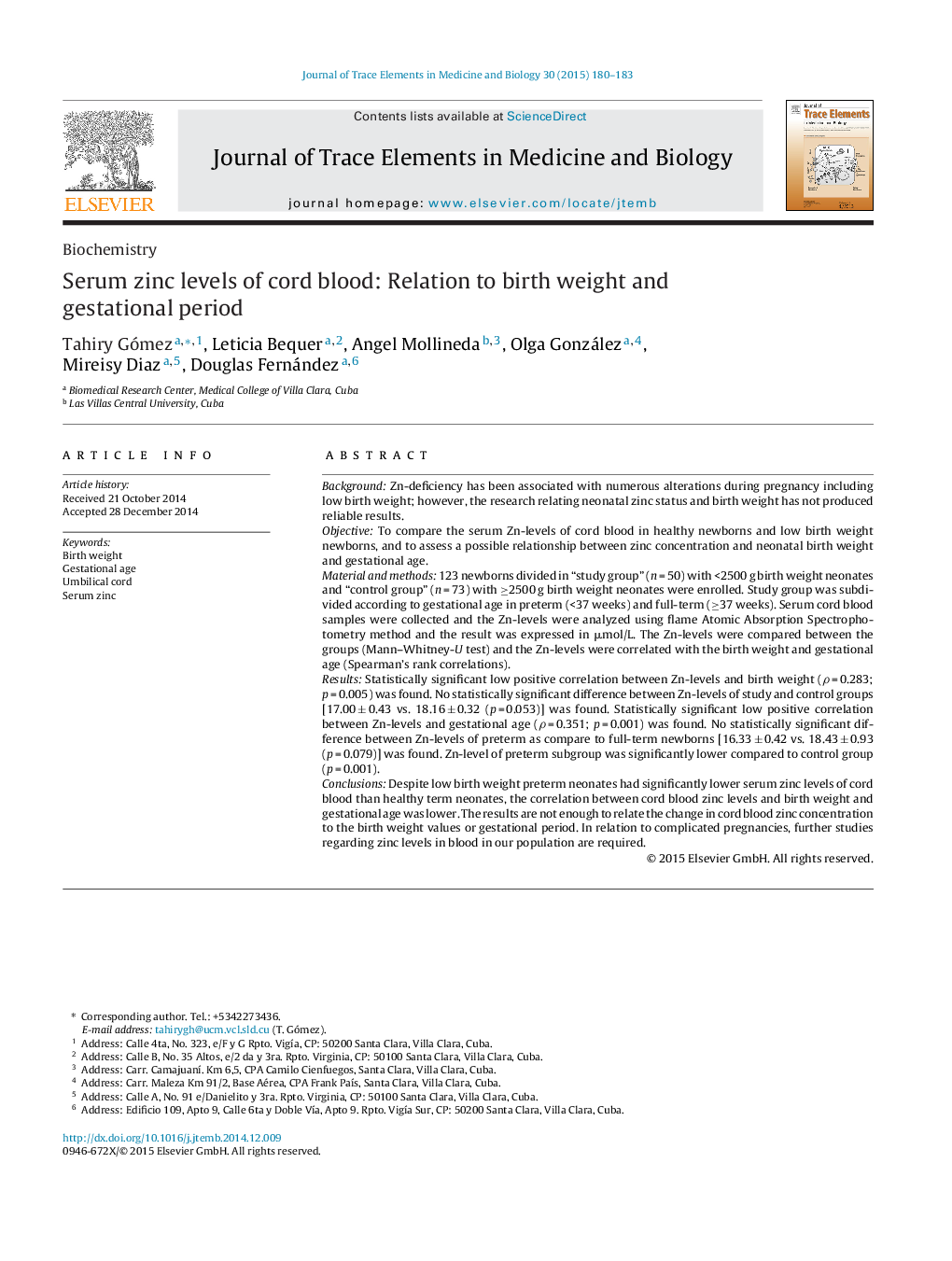| Article ID | Journal | Published Year | Pages | File Type |
|---|---|---|---|---|
| 1226351 | Journal of Trace Elements in Medicine and Biology | 2015 | 4 Pages |
BackgroundZn-deficiency has been associated with numerous alterations during pregnancy including low birth weight; however, the research relating neonatal zinc status and birth weight has not produced reliable results.ObjectiveTo compare the serum Zn-levels of cord blood in healthy newborns and low birth weight newborns, and to assess a possible relationship between zinc concentration and neonatal birth weight and gestational age.Material and methods123 newborns divided in “study group” (n = 50) with <2500 g birth weight neonates and “control group” (n = 73) with ≥2500 g birth weight neonates were enrolled. Study group was subdivided according to gestational age in preterm (<37 weeks) and full-term (≥37 weeks). Serum cord blood samples were collected and the Zn-levels were analyzed using flame Atomic Absorption Spectrophotometry method and the result was expressed in μmol/L. The Zn-levels were compared between the groups (Mann–Whitney-U test) and the Zn-levels were correlated with the birth weight and gestational age (Spearman's rank correlations).ResultsStatistically significant low positive correlation between Zn-levels and birth weight (ρ = 0.283; p = 0.005) was found. No statistically significant difference between Zn-levels of study and control groups [17.00 ± 0.43 vs. 18.16 ± 0.32 (p = 0.053)] was found. Statistically significant low positive correlation between Zn-levels and gestational age (ρ = 0.351; p = 0.001) was found. No statistically significant difference between Zn-levels of preterm as compare to full-term newborns [16.33 ± 0.42 vs. 18.43 ± 0.93 (p = 0.079)] was found. Zn-level of preterm subgroup was significantly lower compared to control group (p = 0.001).ConclusionsDespite low birth weight preterm neonates had significantly lower serum zinc levels of cord blood than healthy term neonates, the correlation between cord blood zinc levels and birth weight and gestational age was lower. The results are not enough to relate the change in cord blood zinc concentration to the birth weight values or gestational period. In relation to complicated pregnancies, further studies regarding zinc levels in blood in our population are required.
